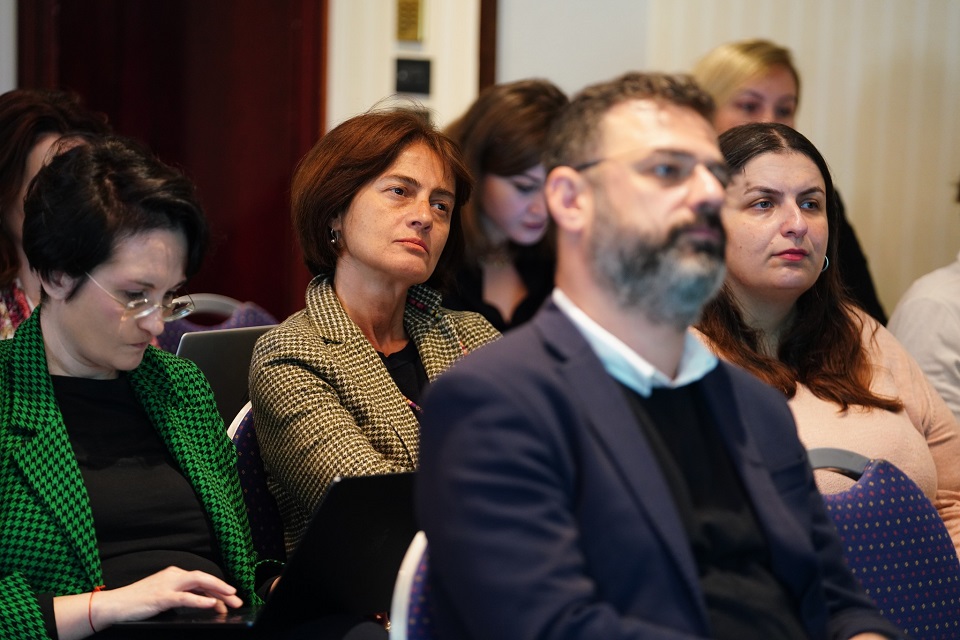‘Gender-Sensitive Reporting During War and Conflict’: Guidelines for Journalists
Date:

Journalism plays a significant role in eliminating discriminatory stereotypes and developing healthy perceptions on gender equality, including when covering conflicts, wars or peacebuilding processes. However, the perspective of women and girls is typically less visible in journalistic pieces produced on these topics; they are mostly shown as victims, and their crucial role - for example, in conflict resolution or peacebuilding - is not appropriately highlighted. In short, gender issues are not properly taken into consideration. At the same time, journalists can sometimes unintentionally contribute to the strengthening of discriminatory gender stereotypes.
Recent global events have rendered these issues an especially acute challenge for media representatives, including those in Georgia. The aforementioned challenge is addressed by the new manual: “Gender-Sensitive Reporting during War and Conflict”, which was collaboratively prepared by the Georgian Charter of Journalistic Ethics with UN Women and the Institute for War and Peace Reporting (IWPR).
The objective of the guidelines is to support the media to consider the gender aspect when preparing journalistic materials. Specifically, it urges them to reflect on the lives of women in conflict and post-conflict environments, covering every aspect while taking into account the impact of conflicts on their everyday lives. In addition, recommendations for editors and government officials to enhance the security and efficacy of the media in the periods of war and conflict are also included in the document.
The document was presented on the 11th of October, with the representatives of the central and regional media outlets, media associations and educational institutions in attendance.
“After the outbreak of the war in Ukraine, I was tasked with preparing a variety of materials featuring women as the main subjects,” noted Radio Liberty correspondent Nino Tarkhnishvili at the presentation of the guidelines. “As soon as I reviewed the initial materials, I realized that writing about [conflict-affected women] required more than just my instincts and that I needed specialized knowledge. It was necessary for me to find other correspondents who could assist me in preparing these materials in adherence to ethical standards. While the new manual offers a framework for reporting ethically on women in warfare, it also raises a number of important issues that I find extremely beneficial as a journalist. I believe this is one of the most timely and valuable manuals created for the journalists in recent years.”
UN Women, in cooperation with the Georgian Charter of Journalistic Ethics, actively promotes holding workshops and seminars for the media representatives as well as sharing relevant knowledge. It is of great importance that such meetings took place before the creation of the guidelines, in order to ensure that its development was entirely based on the practical challenges encountered by journalists. The document was published on the website of the Charter and is accessible to everyone.
The initiative was part of the UN Women project “Accelerating Implementation of the Women, Peace and Security Agenda in Georgia”, supported by the Conflict, Stability and Security Fund of the UK Government.